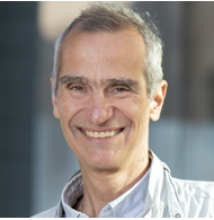MAE 298 Seminar: Stochastic Control meets Non-equilibrium Thermodynamics: Fundamental Limits of Power Generation in Thermodynamic Engines

Distinguished Professor
Department of Mechanical and Aerospace Engineering
University of California, Irvine
Abstract: Thermodynamics was born in the 19th century in quest of a way to quantify efficiency of steam engines at the dawn of the industrial age. In the time since, thermodynamics has impacted virtually all other areas in science, from chemistry and biology to the physics of black holes, and yet, progress beyond the classical quasi-static limit towards finite-time thermodynamic transitions has been slow; finite-time is of essence for non-vanishing power generation. In recent years, a deeper understanding of non-equilibrium processes has been achieved based on stochastic models with degrees of freedom (state variables) that are subject to Brownian excitation that models heat baths. Within this framework, we will explain energy transduction, we will give insights on how anisotropy in thermal or chemical potentials can be tapped for power generation in engineered and physical processes and we will highlight fundamental theoretical bounds on the maximal amount of power that can drawn during finite-time thermodynamic transitions.
The talk is based on joint works with Olga Movilla Miangolarra, Rui Fu, Amir Taghvaei and Yongxin Chen.
Research funding by AFOSR, ARO and NSF is gratefully acknowledged.
Bio: Tryphon T. Georgiou is a Distinguished Professor in the Department of Mechanical and Aerospace Engineering at the University of California, Irvine, and a professor emeritus at the University of Minnesota, Minneapolis. Georgiou joined the faculty of the University of California, Irvine in 2016 after almost thirty years at the University of Minnesota, where he held the Vincentine Hermes-Luh Chair (2002-2016) and served as a co-director of the Center for Control Science and Dynamical Systems at the University of Minnesota (1990-2016). He was educated at the National Technical University of Athens, Greece (1979) and the University of Florida, Gainesville (PhD. 1983). He is a Life Fellow of the Institute of Electrical and Electronics Engineers (IEEE), a Fellow of the Society of Industrial and Applied Mathematics (SIAM), a Fellow of the International Federation of Automatic Control (IFAC), a Fellow of the American Association for the Advancement of Science (AAAS), and a Foreign Member of the Royal Swedish Academy of Engineering Sciences (IVA).
Share
Upcoming Events
-
CEE Ph.D. Defense Announcement: Machine Learning and Remote Sensing for Environmental Modeling - From Large-Scale Streamflow Forecasting to Malaria Risk Mapping
-
CBE Special Seminar: Operando Electrochemical Methods at Dynamic Energy Materials Interfaces
-
CEE Ph.D. Defense Announcement: Release, Transport and Fate of Per- and Polyfluoroalkyl Substances (PFAS) in Urban Watersheds
-
MSE 298 Seminar: Mechano-Electrochemical Phenomena at Ceramic Electrolyte Interfaces
-
MSE 298 Seminar: Innovation In Materials Science - An Industrial R&D Perspective
